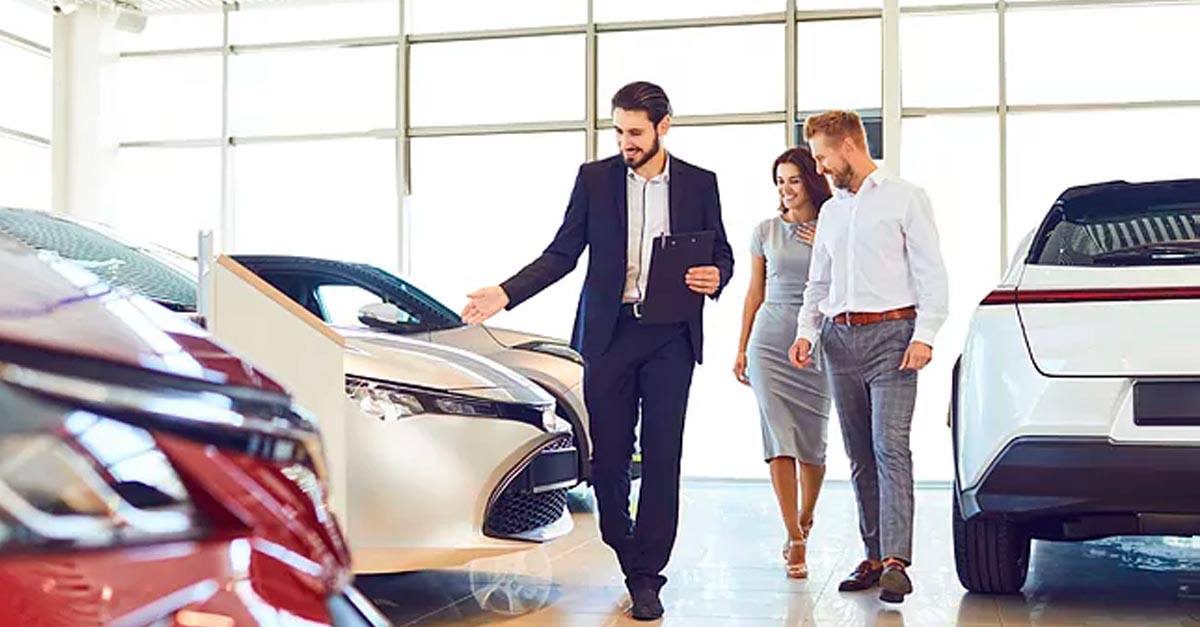The brands will sell the cars directly

Stellantis and Volkswagen Group have announced that they will sell their cars directly. The dealer will not buy the vehicles from brands and will focus on maintenance.
A few days ago Stellantis announced that by mid-2023 it will do without 129 dealerships in Spain. The consortium resulting from the merger of PSA Group and Fiat Chrysler Automobiles (FCA) argued for this decision that as of June 2023, the European Union and its regulation of exception by categories (REC) will allow modifying the relationship of brands with their distributors: dealers.
The ulterior reason for closing 39% of Stellantis dealerships in Spain -31 correspond to the Citroën network , 34% of its total network; 5 to DS, 14% of the total; 23 to the Peugeot network, 23% of the total; 35 to that of FCA, 46% of the total of Fiat, Alfa Romeo and Jeep; and 35 to the Opel dealer network, 37% of the total- lies in a change in the business model of the brands and, therefore, of their franchisees
Manufacturers aim to sell their vehicles directly. They call it sale by agency, which avoids introducing the word dealer. Starting in 2023, Stellantis will market with this model its premium brands -DS, and Alfa Romeo (Lancia in Italy)-, but it wants to market its brands under this formula from 2027.
Just two months ago, Herbert Diess, CEO of the Volkswagen Group, announced that the entire ID family of the German brand (the 100% electric VWs) will be marketed by agency. The Cupra will also be sold like this. Volvo Car sells the Chinese brand Link & Co.
This change does not mean the demise of the dealership. However, its role and business model will change. You will no longer need to buy the vehicles from the brand with the strong financial leverage that this implies, but you will receive a commission for the sale. It will not manage prices or stocks, which is expected to end the bidding war between dealers of the same brand.
Less traffic
Basically, this change also responds to the fact that the customer no longer walks through the dealership to choose a vehicle. 95% of those who enter the dealership do so only once and it is to formalize the purchase of a vehicle that they have already set up online at home and have even chosen their financing formula through through the virtual calculator.
Brands and dealerships, as verified by Faconauto (dealership association) and Ganvam (vendor association), confirm that traffic through exhibitions has been reduced from 4 to 1 in the last 10 years.
Reducing traffic and going to formalize the purchase also requires that it is not necessary for the dealer to have all the models that a brand sells. Thus, in the medium term there will be brand stores in city centers with one or two cars; while on the outskirts, in the so-called automobile cities, the large dealerships will be located. The latter will do more than workshops and customer service in after-sales service, after losing the classic sale of the new car.
In addition to after-sales, other lines of business will be the sale of services in collaboration with brands, the marketing of used vehicles and even they will offer new mobility services such as car sharing. They will become reception and delivery points for rental cars thanks to the fact that the vehicle distribution networks in Spain have great capillarity.
Digitization
What the pandemic has made clear is the lack of connection between brands, dealers and customers digitally. The virus has accelerated the virtual interaction between the consumer and the service provider for the maintenance or purchase of their vehicle. According to Faconauto and Ganvam, the dealers are going to invest 290 million euros in digitization and intend to qualify for European recovery funds, despite the fact that distribution is not included in the first PERTE of the Electric and Connected Vehicle.
The truth is that shoppers’ habits are moving more and more towards buying through one click. The car, according to the distribution professionals, is still resisting because of its aspirational component and because it is a purchase that implies a high expense . That is why proof of the vehicle is implicit to ensure the transaction.
However, 5% of new vehicles are purchased online and, according to a study by coches.net, one in four respondents would be willing to carry out the entire process of buying a new vehicle digitally because it is more comfortable and because of the price.
Digital platforms
At the same time that purchasing habits are changing, the pandemic has caused an economic crisis that adds to the uncertainty of which car to buy in depending on where we live and whether or not the restrictions on movement will be increased or not based on emissions.
In addition, the shortage of semiconductors and chips is causing delays of up to 9 months in the delivery time of a new vehicle.
This has caused many customers to choose to buy a used vehicle. And here are numerous digital platforms that allow you to buy a car without going to the dealership and even take it home: Coches.net, Niw.es, Clicars, CarNext, Heycar, Motoreto, Subascar , Autohero, Carwow, Autoscout, Autocasión, Compramostucoche.com, and even second-hand buying and selling platforms such as Wallapop, Vibbo or Milanuncios. The brands themselves have their digital platforms for selling used cars such as DasWeltAuto (Volkswagen Group) or Spotycar (Stellantis).
These platforms have led the way for dealers and workshops to accelerate digital interaction with their customers, and have even launched the NIW.es platform, 51% owned by the dealers themselves, with which they intend to sell their second-hand vehicles and thus try not to have to pay other intermediation platforms that provide them with quality leads that become A purchase. The problem is that they have to compete with an endless number of digital companies with an advanced big data system focused on hunting down the client.
Because one of the fiercest struggles that has taken place between brands and dealers is who owns the data of the customer who buys the vehicle to track and retain it to offer you more products and services beyond maintenance. For now, it seems that brands are ahead in this war.
Article published in the newspaper Expansión on 08/08/2021. Read original article here< /strong>.




















